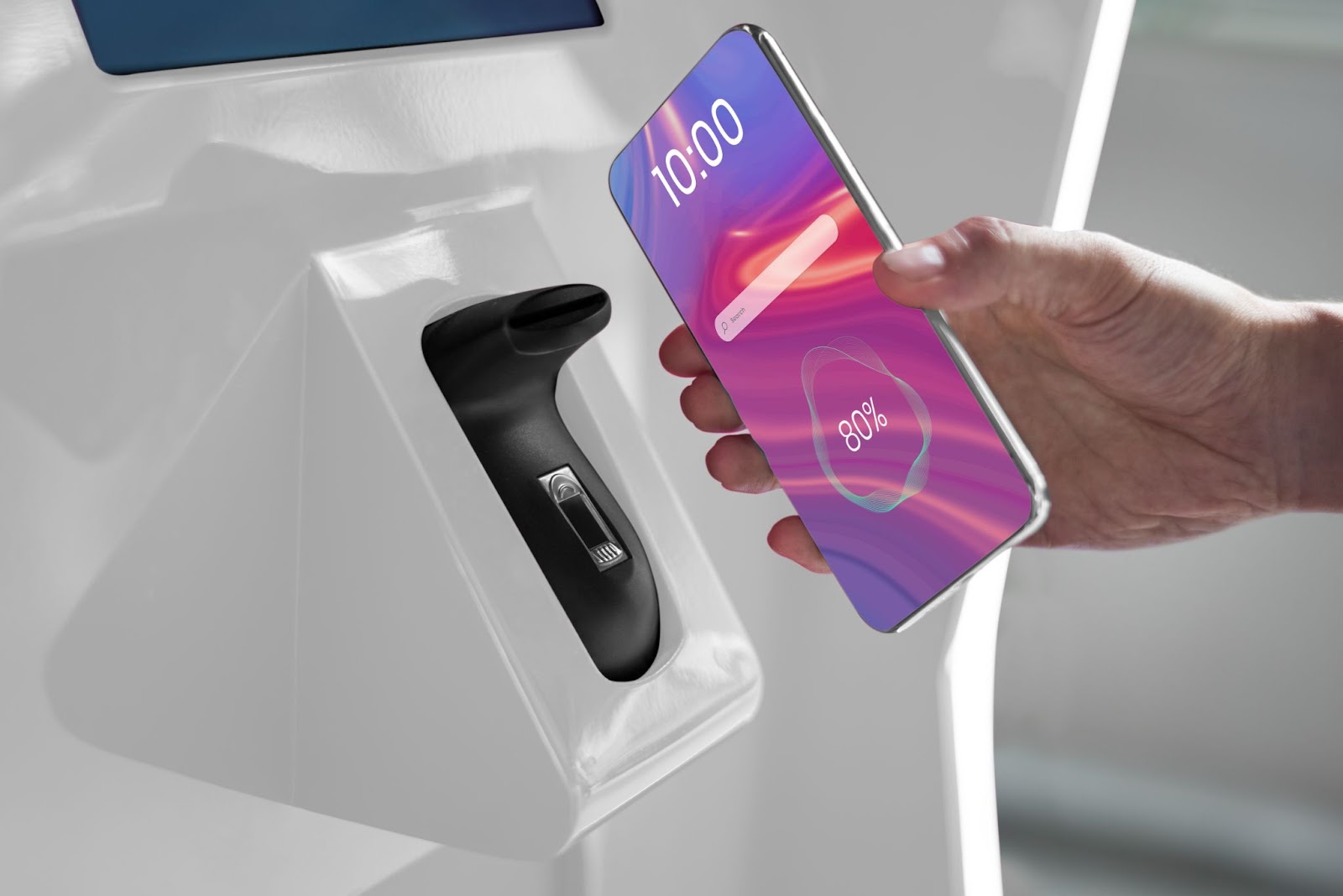Highlights of the Blog
-
Kiosk machines empower customers with self-service options, reducing wait times and providing a convenient, autonomous shopping and banking experience.
-
By handling routine transactions, kiosk machines help businesses reduce labor costs and streamline operations, allowing staff to focus on more complex customer needs.
-
Kiosks gather data on customer preferences, enabling businesses to personalize services and make data-driven improvements to enhance customer satisfaction.
These machines, now seen in a variety of locations from retail stores to bank lobbies, have become essential in enhancing customer experience, improving operational efficiency, and reducing wait times.
Their role in retail and banking is only expected to grow as both industries adapt to changing consumer expectations and technological advancements.
The global bank kiosk market, for instance, is expected to expand significantly—from $18.5 billion in 2023 to $80 billion by 2033—reflecting a robust CAGR of 15%. This growth underscores the increasing demand for self-service technology as banks strive to meet evolving customer needs and streamline operations.
Enhancing Customer Experience with Kiosk Machines
In the retail sector, kiosk machines serve as convenient touchpoints for customers, providing services such as product browsing, price checking, self-checkout, and even personalized recommendations. With kiosks, customers have the freedom to explore product details and make purchases without needing assistance from store employees.
This autonomy empowers customers, leading to higher satisfaction and more efficient shopping experiences. In fact, retail businesses report a significant boost in customer engagement and sales conversions by incorporating kiosks as part of their store design.
In banking, kiosk machines allow customers to complete routine transactions, such as depositing checks, paying bills, and withdrawing cash, without waiting in line for a teller. These machines streamline bank operations by taking on tasks that typically require human assistance, allowing bank staff to focus on more complex customer needs.
As a result, banks can serve more clients efficiently while reducing operational costs. Notably, over 70% of consumers now prefer engaging with their bank through mobile channels for routine transactions, highlighting a growing reliance on self-service technologies for convenience and speed. This shift reflects how kiosks and other self-service options are reshaping customer expectations and preferences.
Improving Efficiency and Reducing Operational Costs
The integration of kiosk machines in retail and banking is a strategic approach to cutting down operational expenses. By handling tasks like payment processing and product inquiries, kiosks enable retailers and banks to operate with fewer on-floor staff, significantly lowering labor costs. Additionally, kiosks save space, requiring far less physical area compared to traditional service desks.
In high-traffic retail settings, kiosks expedite checkout, reducing lines and preventing crowding. Banks benefit similarly by reducing teller queues, allowing customers to complete transactions quickly via self-service.
The banking sector's market for kiosks is expected to grow at a CAGR of 16.1% from 2025 to 2030, driven by the rising need for self-service options and reduced operational costs. Kiosk machines have become invaluable in managing high customer volumes while maintaining service quality.
The Role of Kiosk Machines in Data Collection
Another advantage of kiosk machines in both retail and banking is their ability to collect data on customer preferences and behaviors.
By analyzing this data, businesses gain valuable insights into customer needs, helping them tailor their services accordingly.
Retailers can adjust product offerings, while banks can refine their financial services. These data-driven insights allow businesses to adapt their strategies to meet customer expectations more effectively.
Looking Ahead: The Future of Kiosk Machines

As technology continues to advance, the capabilities of kiosk machines will likely expand. Emerging trends like AI integration and biometric verification will make kiosks even more secure and personalized. For instance, future kiosk machines may recognize returning customers, offering them tailored services based on their past interactions.
Conclusion
The rise of kiosk machines in retail and banking highlights their transformative impact on customer service, efficiency, and data-driven decision-making.
As they streamline transactions and enhance convenience, kiosk machines empower customers with autonomy while allowing businesses to optimize their operations and reduce costs.
With continued advancements in technology, kiosks are poised to become even more personalized and secure, offering tailored experiences and elevating customer satisfaction.
As the demand for seamless and efficient service grows, kiosk machines will remain at the forefront of innovation, shaping the future of retail and banking interactions for years to come.
For a diverse range of automated banking kiosks, check out CBSL's business automation solutions.
Frequently Asked Questions
1. What is a Kiosk Machine?
A kiosk machine is a self-service device that enables users to perform specific tasks without direct assistance from staff. For example, CBSL offers automated banking kiosks to banks to streamline banking operations and improve the customer experience.
2. What is The Purpose Of A Kiosk?
The purpose of a kiosk is to provide automated services that enhance convenience, reduce wait times, and improve operational efficiency. CBSL kiosks assist banks in delivering superior customer service by integrating seamlessly with banking solutions, enabling faster and more efficient transactions.
3. Where is a Kiosk Used?
Kiosks are used in various sectors, including:
Banking: Automated kiosks help banks offer convenient self-service options for their customers.
Private Service Organizations: CBSL kiosks support service delivery in corporate and retail environments.
Healthcare: Kiosks are deployed in healthcare settings to streamline patient management and other services.
CBSL's kiosks are also installed in challenging terrains across the country and maintained effectively by their trained workforce.